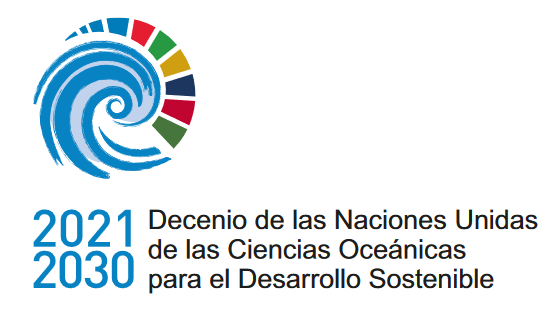Participación de las mujeres, desafíos y problemas encontrados en los principales mercados pesqueros durante la pandemia de COVID-19 en Davao, Filipinas
DOI:
https://doi.org/10.47193/mafis.3742024010706Palabras clave:
Región de Davao, vendedores de pescado, cuestiones de género, medios de vida, procesadoresResumen
Las mujeres vendedoras de pescado participan activamente en el sector pesquero, pero enfrentan varios desafíos en cuanto a su capital financiero y sus oportunidades. Existe un desequilibrio de poder dentro del mercado, ya que los hombres parecen dominar y las mujeres no tienen poder ni voz para proteger sus derechos. Este estudio proporciona información valiosa sobre las percepciones y experiencias de estas mujeres en la región de Davao, al centrarse no solo en el papel de las mujeres en las pesquerías y los principales mercados pesqueros de Mindanao, Filipinas, sino también en su contribución y los desafíos que enfrentan. Hemos realizado entrevistas de campo semiestructuradas con vendedoras de pescado (n = 99) y entrevistas de seguimiento en profundidad para validar los resultados (n = 80). Entre los encuestados, 90% en Tagum, 80% en Panabo y 75% en la ciudad de Davao eran vendedores que no eran propietarias de sus puestos. A pesar de la participación activa de las mujeres en actividades comerciales de pescado, como la venta y el corretaje de pescado y la financiación en el mercado, muchas de ellas no tienen puestos de venta propios. Se encontró que las mujeres participan en el sector de comercialización de pescado porque recibieron capacitación previa de familiares involucrados en el negocio (29%), o querían un trabajo bien remunerado (19%), o era su única oportunidad económica (14%). Otro motivo fue la rentabilidad (9%), para mantener a sus familias (9%) y a sus hijos (8%). Los problemas comunes que encontraron las mujeres en el mercado de pescado incluyeron una disminución del número de clientes (40%), el agotamiento laboral debido a la combinación de sus tareas domésticas y de mercado (14%) y clientes y empleadores groseros (10%). Además, las mujeres también informaron problemas relacionados con los vendedores ambulantes (9%), los bajos precios del pescado (8%) y la falta de acceso a crédito financiero (8%). Muchas de las mujeres mantenían a sus maridos proporcionándoles ingresos adicionales a sus familias. En general, las vendedoras de pescado desempeñan un papel fundamental en la economía local de sus aldeas y familias. Esto implica que se necesita un mayor apoyo para tener acceso financiero a empresas pesqueras y que se conviertan en beneficiarias de programas de capacitación y desarrollo de medios de vida, al tiempo que ayudan a sus familias a superar la inseguridad alimentaria y la pobreza.
Descargas
Métricas
Citas
Al Eid NA, Arnout BA. 2020. Crisis and disaster management in the light of the Islamic approach: COVID‐19 pandemic crisis as a model (a qualitative study using the grounded theory). J Public Aff. 20 (4): e2217.
Aswathy P, Kalpana K. 2018. Women’s work, survival strategies and capitalist modernization in South Indian small-scale fisheries: the case of Kerala. Gend Technol Dev. 22: 205-221.
Barclay KM, Satapornvanit AN, Syddall VM, Williams MJ. 2022. Tuna is women’s business too: applying a gender lens to four cases in the Western and Central Pacific. Fish Fish. 23: 584-600. DOI: https://doi.org/10.1111/faf.12634
Bassett HR, Lau J, Giordano C, Suri SK, Advani S, Sharan S. 2021. Preliminary lessons from COVID-19 disruptions of small-scale fishery supply chains. World Dev. 143: 105473.
Bennett E. 2005. Gender, fisheries and development. Mar Policy. 29: 451-459.
Bird SR. 2006. Theorizing masculinities: recent trends in the social sciences. Gend Stud J Eastern Europe. 14: 1-21.
Blanc B. 1998. Women vendors’ work histories in Port-au-Prince: what lessons can be learned for research and action? Environ Urban. 10: 187-200.
Bradford K, Katikiro RE. 2019. Fighting the tides: a review of gender and fisheries in Tanzania. Fish Res. 216: 79-88.
Brillo BBC, Jalotjot HC, Cervantes CC, Rola AC. 2019. Impact on income and livelihood of fisheries workers: closed fishing season policy for sardines in Zamboanga Peninsula, Philippines. J Coast Conserv. 23: 1057-1067.
Chandra A, McNamara KE, Dargusch P, Caspe AM, Dalabajan D. 2017. Gendered vulnerabilities of smallholder farmers to climate change in conflict-prone areas: a case study from Mindanao, Philippines. J Rural Stud. 50: 45-59.
Cole SM, Kaminski AM, McDougall C, Kefi AS, Marinda PA, Maliko M, Mtonga J. 2020. Gender accommodative versus transformative approaches: a comparative assessment within a post-harvest fish loss reduction intervention. Gend Technol Dev. 24 (1): 48-65. DOI: https://doi.org/10.1080/09718524.2020.1729480
Cole SM, McDougall C, Kaminski AM, Kefi AS, Chilala A, Chisule G. 2018. Postharvest fish losses and unequal gender relations: drivers of the social-ecological trap in the Barotse Floodplain fishery, Zambia. Ecol Soc. 23 (2): 18. DOI: https://doi.org/10.5751/ES-09950-230218
Drury O’Neill E, Lindahl T, Daw T, Crona B, Ferrer AJG, Pomeroy R. 2019. An experimental approach to exploring market responses in small-scale fishing communities. Front Mar Sci. 6: 491.
Egna H, Reifke L, Gitonga N. 2012. Improving gender equity in aquaculture education and training: 30 years of experiences in the pond dynamics/aquaculture, aquaculture, and aquafish collaborative research support programs. Asian Fish Sci. 25: 119-128.
[FAO] Food and Agriculture Organization of the United Nations. 2008. Achieving poverty reduction through responsible fisheries. Lessons from West and Central Africa. Rome: FAO. p. 190.
Fitriana R, Stacey N. 2012. The role of women in the fishery sector of Pantar Island, Indonesia. Asian Fish Sci. 25: 159-175.
Frocklin S, de la Torre-Castro M, Lindstrom L, Jiddawi NS. 2013. Fish traders as key actors in fisheries: gender adaptive management. Ambio. 42: 951-962.
Garcia C, Makhoul N, Fox M, Tuxson T. 2022. Looking at the impacts of COVID-19 on coastal communities in the Pacific using a gender and social inclusion lens. Women Fish Inf Bull. 35: 21-25.
Glass J, McMorran R, Currie M, McKee A, Pinker A, Reed M, Meador E, Markantoni M. 2022. Translating community resilience theory into practice: a deliberative Delphi approach. Sociol Ruralis. 62 (4): 675-698.
Hapke HM. 2001. Petty traders, gender, and development in a south Indian fishery. Econ Geogr. 77: 225-249.
Hapke HM, Ayyankeril D. 2004. Gender, the work‐life course, and livelihood strategies in a South Indian fish market. Gend Place Cult. 11: 229-256.
Kizito P, Kimani E, Lodiaga M. 2009. Ventures within fisheries value chain that men and women participate in Nairobi City, Kenya. Adv Soc Sci Res J. 4: 32-41.
Kleiber D, Harris LM, Vincent ACJ. 2015. Gender and small‐scale fisheries: a case for counting women and beyond. Fish Fish. 16: 547-562.
Koralagama D, Gupta J, Pouw N. 2017. Inclusive development from a gender perspective in small scale fisheries. Curr Opin Env Sust. 24: 1-6. DOI: https://doi.org/10.1016/j.cosust.2016.09.002
Kumar R. 2011. Research methodology: a step by step guide for beginners. 3th ed. London: Sage Publications.
Lawless S, Cohen PJ, Mangubhai S, Kleiber D, Morrison TH. 2021. Gender equality is diluted in commitments made to small-scale fisheries. World Dev. 140: 105348.
Levin CE, Ruel MT, Morris SS, Maxwell DG, Armar-Klemesu M, Ahiadeke C. 1999. Working women in an urban setting: traders, vendors and food security in Accra. World Dev. 27: 1977-1991.
Loquias MP, Digal LN, Placencia SG, Astronomo JTI, Orbeta MLG, Balgos CQ. 2022. Factors affecting participation in contract farming of smallholder Cavendish banana farmers in the Philippines. Agric Res. 11: 146-154. DOI: https://doi.org/10.1007/s40003-021-00544-0
Lwenya CA, Abila RO. 2001. The role of women in artisanal fish processing and trading on Lake Victoria (Kenya). Afr J Trop Hydrobiol Fish. 10: 1-2.
Maaike Hendriks M. 1994. Trade arrangements and interlinked credit in the Philippines. In: Bouman FJA, editor. Financial landscapes reconstructed: the fine art of mapping development. Routledge. p. 209-221.
Macusi ED, Castro MM, Nallos IM, Peralez CP. 2023a. Fishers’ communication as a critical factor for tuna catches and potential benefits of traceability draws small-scale fishers to program. Ocean Coast Manage. 245: 106862. DOI: https://doi.org/10.1016/j.ocecoaman.2023.106862
Macusi ED, Diampon DO, Macusi ES. 2023b. Understanding vulnerability and building resilience in small-scale fisheries: the case of Davao Gulf, Philippines. Clim Policy. DOI: https://doi.org/10.1080/14693062.2023.2261889
Macusi ED, Liguez AKO, Macusi ES, Digal LN. 2021. Factors influencing catch and support for the implementation of the closed fishing season in Davao Gulf, Philippines. Mar Policy. 130: 104578.
Macusi ED, Macusi ES, Canales CMG, Barboza A, Digal LN. 2022a. Women’s participation and support for the implementation of the closed fishing season in Davao Gulf, Philippines. Mar Policy. 143: 105133.
Macusi ED, Morales IDG, Macusi ES, Pancho A, Digal LN. 2022b. Impact of closed fishing season on supply, catch, price and the fisheries market chain. Mar Policy. 138: 105008. DOI: https://doi.org/10.1016/j.marpol.2022.105008
Macusi ED, Rafon JKA, Macusi ES. 2022. Impact of COVID-19 and closed fishing season on commercial fishers of Davao Gulf, Mindanao, Philippines. Ocean Coast Manage. 217: 105997.
Macusi ED, Siblos SKV, Betancourt MES, Macusi ES, Calderon MN, Bersaldo MJI, Digal LN. 2022c. Impacts of COVID-19 on the catch of small-scale fishers and their families due to restriction policies in Davao Gulf, Philippines. Front Mar Sci. 8: 770543.
Maynawang IS, Macusi ED, Macusi ES. 2023. Gender and disaster: impacts and adaptation of women after typhoon Pablo in Baganga, Davao Oriental. NRCP Res J. 22 (2): 140-172.
Maynawang IS, Peralez C, Lorenzo H, Macusi ES. 2021. Role of women and coastal livelihood in the small-scale fisheries (SSF) of Lupon and Governor Generoso, Davao Oriental. Davao Res J. 12 (5): 10-21. DOI: https://doi.org/10.59120/drj.v12i5.94
Manstead ASR. 2018. The psychology of social class: how socioeconomic status impacts thought, feelings, and behaviour. Br J Soc Psychol. 57: 267-291.
McGinn KL, Oh E. 2017. Gender, social class, and women’s employment. Curr Opin Psychol. 18: 84-88.
Menon N. 2020. Mobility as capability: women in the Indian informal economy. Cambridge: Cambridge University Press.
Munn SL. 2013. Unveiling the work-life system: the influence of work-life balance on meaningful work. Adv Dev Hum Resour. 15: 401-417.
Murunga M. 2021. Towards a better understanding of gendered power in small scale fisheries of the Western Indian Ocean. Global Environ Change. 67: 102242.
Mutia MTM, Magistrado ML, Fermaran MJL, Muyot MC. 2020. Gender participation in the fisheries sector of Lake Taal, Philippines. Philipp J Fish. 27: 157-182.
Ocampo A, Binondo J. 2022. Exploring gender dynamics in rural tuna fishing communities in the Lagonoy Gulf, Philippines. J Int Women’s Stud. 23 (6): 8.
Paris TR. 2004. Women’s roles and needs in changing rural Asia with emphasis on rice-based agriculture. Social Science. Social Science Division, IRRI, Los Banos, Laguna. p. 1-15.
Parks MH, Christie ME, Bagares I. 2014. Gender and conservation agriculture: constraints and opportunities in the Philippines. GeoJ. 80: 61-77.
Pavo RR, Digal LN. 2017. Women’s space in the fish port Tambler Complex and the value-chain nodes of the fishing industry in General Santos City, Philippines. Asian Fish Sci. 30: 33-58.
[PSA] Philippine Statistics Authority. 2022. Selected statistics on agriculture and fisheries. Diliman, Quezon City: Philippine Statistics Authority. p. 1-76.
Rohe J, Schlüter A, Ferse SCA. 2018. A gender lens on women’s harvesting activities and interactions with local marine governance in a South Pacific fishing community. Marit Stud. 17: 155-162.
Samuel L. 2007. Women, work and fishing: an examination of the lives of fisherwomen in Kerala. South Asia Res. 27: 205-227.
Siason I. 2001. Women in fisheries in the Philippines. In: Williams MJ, Nandeesha MC, Corral VP, Tech EP, editors. International symposium on women in Asian fisheries: Fifth Asian Fisheries Forum. Asian Fisheries Society, 13 November 1998, Chiang Mai, Thailand. Penang: WorldFish Centre and Asian Fisheries Society. p. 69-77.
Thanh PT, Duong PB. 2022. The COVID-19 pandemic and the livelihood of a vulnerable population: evidence from women street vendors in urban Vietnam. Cities. 130: 103879.
Tindall C, Holvoet K. 2008. From the lake to the plate: assessing gender vulnerabilities throughout the fisheries chain. Development. 51: 205-211.
Toulmin C. 2009. Securing land and property rights in sub-Saharan Africa: the role of local institutions. Land Use Policy. 26 (1): 10-19.
Torell E, Castro J, Lazarte A, Bilecki D. 2021. Analysis of gender roles in Philippine fishing communities. J Int Dev. 33: 233-255.
Weeratunge N, Snyder KA, Poh Sze C. 2010. Gleaner, fisher, trader, processor: understanding gendered employment in fisheries and aquaculture. Fish Fish. 11: 405-420.
Williams MJ. 2016. How are fisheries and aquaculture institutions considering gender issues? Asian Fish Sci. 29: 21-48.
Yin RK. 2016. Qualitative research from start to finish. 2nd ed. New York: Guilford Press

Descargas
Publicado
Cómo citar
Número
Sección
Licencia
Derechos de autor 2024 Erna S. Macusi, Ivy M. Nallos, Charlen Mae G. Canales, Michael Jeriel I. Bersaldo, Edison D. Macusi

Esta obra está bajo una licencia internacional Creative Commons Atribución-NoComercial-CompartirIgual 4.0.
Los autores de los artículos publicados en Marine and Fishery Sciences conservan los derechos de autor de sus artículos, a excepción de las imágenes de terceros y otros materiales añadidos por Marine and Fishery Sciences, que están sujetos a los derechos de autor de sus respectivos propietarios. Por lo tanto, los autores son libres de difundir y volver a publicar sus artículos, sujeto a los requisitos de los propietarios de derechos de autor de terceros y sujeto a que la publicación original sea completamente citada. Los visitantes también pueden descargar y reenviar artículos sujetos a los requisitos de citas. La capacidad de copiar, descargar, reenviar o distribuir cualquier material siempre está sujeta a los avisos de derechos de autor que se muestran. Los avisos de copyright deben mostrarse de manera prominente y no pueden borrarse, eliminarse u ocultarse, total o parcialmente. El autoalmacenamiento en servidores y repositorios de preimpresión está permitido para todas las versiones.
Esta revista ofrece a los autores una política de acceso abierto. Los usuarios pueden leer, descargar, copiar, distribuir, imprimir, buscar o vincular los textos completos de los artículos, o usarlos para cualquier otro propósito legal dentro de la licencia Creative Commons 4.0 (BY-NC-SA), sin solicitar permiso previo del editor o del autor. Esto está de acuerdo con la definición BOAI de acceso abierto.





























